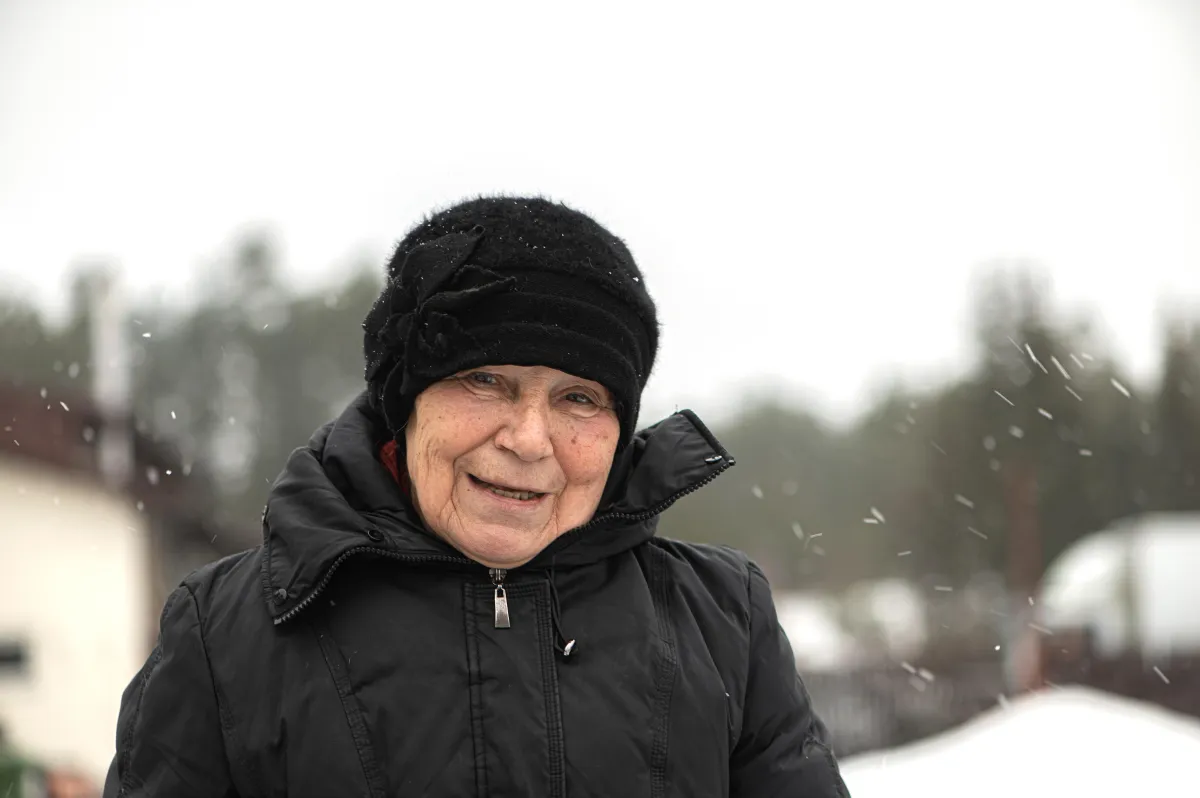Resources for Family Safety

7 Winter Safety Tips for Seniors with Alzheimer's from Alzheimer’s LA
As the winter months approach, even in typically mild climates like California, the season brings unique challenges for seniors, especially those living with Alzheimer’s or other forms of dementia. We recently joined an Instagram Live hosted on Alzheimer's Los Angeles Instagram account, where Tiphany Thomas, Manager of Education & Outreach for the African American Community, shared essential winter safety tips for seniors with Alzheimer’s that caregivers and families should know.
These insights are valuable not only for Californians but for seniors and caregivers across the country as temperatures continue to drop. You can learn more about the incredible work this organization does for people living with Alzheimer’s and other dementias and their caregivers on their official website. Let’s get into a brief recap of the tips discussed!
7 Winter Safety Tips for Seniors with Alzheimer’s
During this enlightening Instagram Live, Tiphany provided several great tips to keep elderly loved ones safe in the coming months. Understanding these tips is especially important for those with elderly loved ones who have dementia or Alzheimer’s because they will need a little extra help preparing for the cold. Here are the top 7 winter safety tips for seniors with Alzheimer’s:
Wear Proper Winter Clothing
Keep Indoor Spaces Warm and Safe
Encourage Regular Movement
Address Seasonal Affective Disorder (SAD)
Prevent Wandering in Cold Weather
Monitor Hydration and Nutrition
Create a Routine for Comfort and Safety
1. Wear Proper Winter Clothing
One of Tiphany’s primary tips was ensuring that seniors have access to weather-appropriate clothing.
People living with dementia may not recognize temperature changes or communicate their discomfort effectively. It’s also easy for them to forget important winter safety items like hats, gloves, scarves, or ear muffs. Tiphany recommended:
Swapping out summer clothes for warm winter options.
Making hats, scarves, and layers easily accessible.
Choosing light but warm jackets for those who dislike heavy layers.
Ensuring socks and indoor slippers are warm and non-slip.
“Make sure what is accessible for clothing is actually appropriate for the weather,” Tiphany emphasized.
Additionally, she suggested that caregivers be aware of whether the person tends to run warm or cold, as preferences can vary greatly.
2. Keep Indoor Spaces Warm and Safe
Maintaining a warm indoor environment is crucial for seniors in winter. Tiphany highlighted the importance of balancing warmth with safety:
Regularly check heaters and electric blankets for damage.
Use humidifiers to prevent dry air, which can irritate sinuses and skin.
Keep warm blankets and comfortable clothing readily available.
Ensure space heaters are placed safely and away from flammable materials.
She also stressed the importance of checking thermostats regularly to ensure consistent indoor temperatures.
3. Encourage Regular Movement
Staying active helps regulate body temperature and improves circulation. Tiphany advised caregivers to encourage light physical activities, such as stretching, walking, or gentle exercises.
“Blood circulation keeps the body warm and helps regulate temperature naturally,” she explained.
On top of regulating body temperature, it’s important to know that it can also improve overall mood and reduce restlessness in individuals with dementia.
4. Address Seasonal Affective Disorder (SAD)
Shorter days and less sunlight can affect mood and behavior, causing anxiety or depression in seniors. Tiphany suggested:
Taking walks during sunny hours.
Using sunlight lamps to simulate natural light indoors.
Arranging furniture to maximize exposure to daylight.
Keeping curtains open during the day to let natural light in.
“Even just a few minutes of natural sunlight can make a huge difference in someone's mood during the wintertime,” Tiphany added.
5. Prevent Wandering in Cold Weather
Wandering is a significant concern for individuals with Alzheimer’s, and cold weather can escalate the risks. Tiphany stressed the importance of prevention:
Use GPS trackers and medical alert bracelets.
Secure doors, gates, and other exits.
Ensure personal information is up-to-date and accessible.
Place alarms or chimes on doors to alert caregivers if someone is leaving.
Tiphany noted, “Wandering can happen in just a few minutes, and exposure to cold weather can become dangerous very quickly.”
Related Article: What is a Silver Alert, and How Can You Prevent a Missing Senior?
6. Monitor Hydration and Nutrition
Warm indoor heating can lead to dehydration, and cooler weather can reduce appetite. Tiphany recommended:
Offering warm (not scalding) drinks regularly.
Keeping healthy snacks easily accessible.
Monitoring fluid intake throughout the day.
Including hydrating soups and broths in meals.
Proper hydration and nutrition can also prevent fatigue and help maintain energy levels throughout the day.
7. Create a Routine for Comfort and Safety
Consistency is key for seniors with Alzheimer’s or dementia. Tiphany emphasized the importance of routines:
Keep meal times, nap times, and activity times consistent.
Gradually adjust schedules for daylight savings time.
Plan outings and activities during daylight hours.
Having a stable routine can reduce anxiety and confusion caused by seasonal changes.
Why My Family ID is an Important Tool For Loved Ones and Caretakers of Seniors
At My Family ID, we understand how critical it is to have identification and tracking tools in place, especially during colder months. Our app securely stores vital information, including medical details and emergency contacts, ensuring caregivers can act swiftly if a loved one wanders or gets lost.
Tiphany also pointed out, “Having a GPS tracker or medical alert bracelet is one of the simplest yet most effective ways to prevent wintertime wandering risks.”
Related Article: The Top Identity Scan App for Families
Final Thoughts on Winter Safety Tips for Seniors with Alzheimer’s
Winter brings unique challenges, but with preparation and the right tools, caregivers can help seniors stay safe, comfortable, and healthy throughout the season. From clothing choices to home safety, hydration, and emotional well-being, these winter safety tips for seniors with Alzheimer’s from Alzheimer's LA provide a comprehensive guide for caregivers.
For more winter safety resources, be sure to follow @alzheimersla on Instagram and visit their website. Together, we can ensure a safer and more comfortable winter season for seniors living with Alzheimer's and other forms of dementia.
Stay warm, stay safe, and stay connected.






